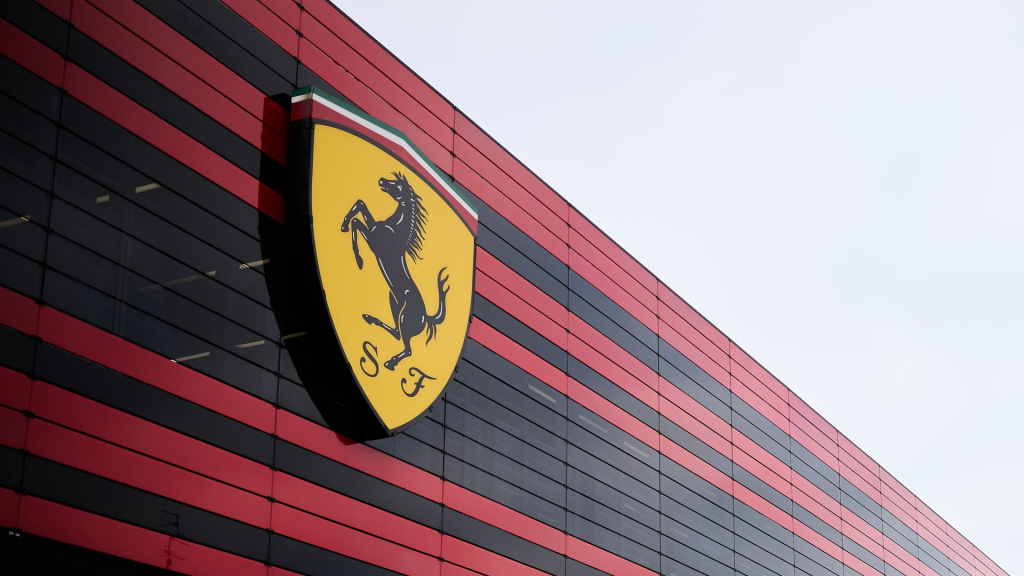On Tuesday, luxury automotive manufacturer Ferrari announced a notable surge in its first-quarter profits, attributing this growth to strong consumer interest in bespoke vehicles. However, the company cautioned that U.S. President Donald Trump’s trade policies might pose risks to earnings over the course of the year.
The Maranello-based firm reported a net profit of 412 million euros (approximately $466.3 million) for the initial three months of the year, marking a 17% rise compared to the same timeframe in 2022.
Analysts had forecasted a first-quarter net profit of 410 million euros, as indicated by a Reuters poll.
“Another year is off to a great start,” said Ferrari CEO Benedetto Vigna in a statement.
“In the first quarter of 2025, with very few incremental shipments compared to last year, all key metrics achieved double-digit growth, highlighting strong profitability fueled by our product mix and sustained interest in personalizations,” Vigna elaborated.
As the company looks towards the future, it expressed concerns that the introduction of tariffs on European vehicles imported to the U.S. could negatively affect profitability this year.
“Our [2025] guidance carries a potential risk of a 50 basis points decrease in profitability percentage margins (EBIT and EBITDA margins), related to adjustments in commercial policy following the U.S. import tariffs on EU cars,” Ferrari stated in its earnings report.
Ferrari’s projections for 2025 include expectations of net revenue exceeding 7 billion euros (around $7.93 billion), earnings before interest, taxes, depreciation, and amortization (EBITDA) of at least 2.68 billion euros ($3.04 billion), and adjusted earnings per share of approximately 8.60 euros ($9.74).
The luxury automotive sector is grappling with the ramifications of Trump’s fluctuating tariff policies. Several major European automobile manufacturers recorded steep declines in quarterly profits this earnings season, leading many to retract or cut financial guidance as a result of Trump’s tariffs.
“Ferrari distinguishes itself at a time when numerous automotive and other firms are suspending their guidance due to uncertainties posed by U.S. tariffs and their ripple effects on both the U.S. and global economies,” noted Bernstein analyst Stephen Reitman in an investor report on Tuesday.
In early April, the president imposed a 25% tariff on automotive imports to the U.S. Last week, he sought to mitigate the impact of these tariffs by signing an executive order intended to prevent various duties, including additional 25% tariffs on steel and aluminum, from compounding.
In response to the tariffs, Ferrari announced in March that it would increase prices by 10% on select models, potentially adding as much as $50,000 to the price of a typical Ferrari.
“We remain optimistic about the future while staying alert to the ongoing situation,” Vigna conveyed to investors during the company’s quarterly earnings call.
At 12:44 p.m. London time, shares of the Milan-listed stock were trading approximately 0.8% lower, with U.S.-listed shares reflecting similar patterns.
Ferrari reported a slight increase of less than 1% in global shipments during the first quarter, totaling 3,593 vehicles. Despite this stagnation in shipments, the company’s net revenue saw an uptick of around 13%, reaching 1.79 billion euros ($2.03 billion), with net profit climbing 17% to 412 million euros ($466.7 million).
Regarding the anticipated launch of Ferrari’s first all-electric vehicle, the Elettrica, Vigna revealed that the unveiling will not occur until spring 2026, aiming for deliveries to begin in October of that year.
Originally, it was expected that the Elettrica would be showcased at Ferrari’s upcoming capital markets day in October; however, the company will instead discuss the technological foundations of the vehicle, as per Vigna.
“This represents a significant advancement in technology, design, and unique features. Our journey ahead will be one of exciting discovery,” Vigna said concerning the phased rollout of the EV, adding that it will embody essential elements true to Ferrari’s legacy.


























